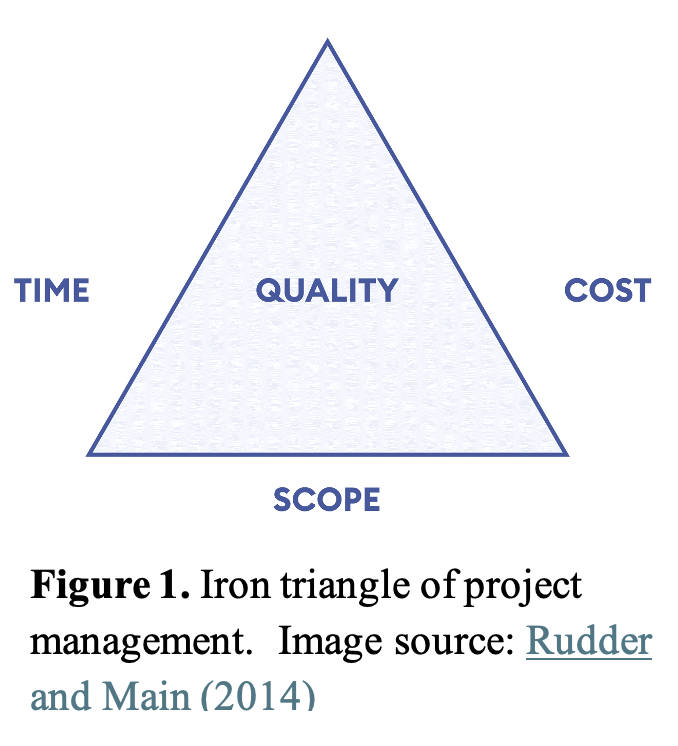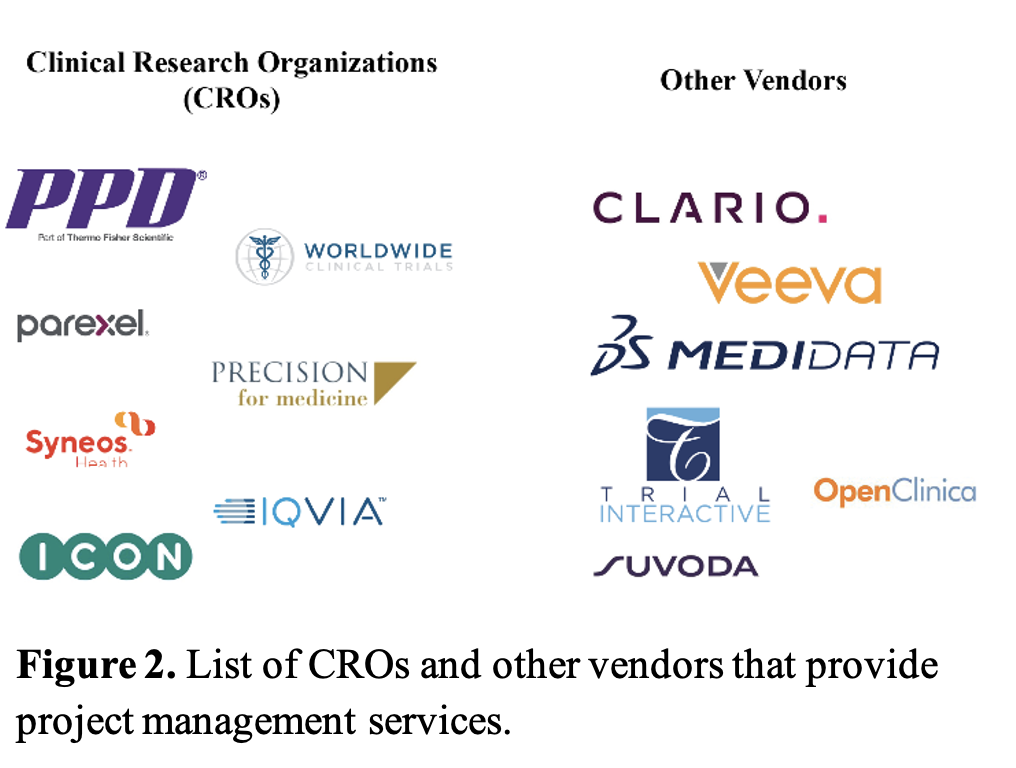By E. Beyza Guven
Project management involves achieving specific project objectives within a finite timeline and budget. The project management triangle (see Figure 1; Rudder & Main, 2024) effectively summarizes the key pillars: cost, timeline, and scope. These three constraints can influence the quality of the deliverables. Thus, project management provides the tools and techniques to balance these constraints while maintaining the quality of the final product. To accomplish these goals, a project manager's responsibilities include setting project objectives, delegating tasks to teams, and determining feasible timelines and appropriate budgets.

If overseeing a project from start to finish and contributing to its success sounds appealing, your PhD experience will serve you well in this career path. According to Dr. Cortney Miller, who holds a PhD in Neurobiology and is currently an associate director at Dyne Therapeutics, scientists are well-suited for project management for several reasons. As scientists, we are detail-oriented, which is crucial for identifying and mitigating risks in project management. We are also fast learners; project managers are expected to quickly learn and distill new information and communicate it clearly and concisely. Project management demands strong organizational skills, as project managers work with multiple vendors and oversee numerous products—much like PhD students working with different teams on various projects. Finally, curious minds like ours know how and when to ask the right questions, a valuable skill when planning, executing, and assessing a project.
Many of you wonder where you can find project management roles in the biotech and pharmaceutical industries. Dr. Miller categorizes companies that provide project management services into three groups (see Figure 2). First, there are clinical third-party vendors, also known as Clinical Research Organizations (CROs), contract-based companies that offer a wide range of services to manage clinical research studies and support product development. In addition, some specialized vendors provide more niche services, such as equipment training and data support for specific physiological assessments and data capture systems. Finally, there are sponsor companies that finance clinical research studies. Within these companies, project management roles exist across various departments, including data management, process improvement, sample management, business operations and development, and clinical operations (i.e., ClinOps).

Clinical Operations is a specific subset of project management involved in the planning and executing of clinical trials from start to finish. The workflow in clinical operations includes protocol development, clinical site selection and initiation, patient recruitment, study conduct, and finally, treatment. Clinical operations teams ensure that regulations and ethical guidelines are followed throughout clinical trials, that the trials yield high-quality data, and that potential risks are identified and mitigated.
Now, the question becomes: "How can we land a job in clinical operations?" Well, preparation is key! Dr. Miller suggests researching the jobs available and familiarizing yourself with companies of interest, such as CROs, consulting firms, and data management companies. Being active on LinkedIn also plays a significant role. You can engage with companies you'd like to work for and talk to employees working there. You can set job alerts, read job descriptions that interest you, and familiarize yourself with industry-specific terminology to refine your resume accordingly. After this step, you'll likely realize you possess the necessary project management skills. The second important element in job searching is perseverance. You must accept that it’s a challenging process, but you can and will get through it—just like that PhD title you’ve been working toward! From a hiring manager’s perspective in clinical operations, Dr. Miller believes the applicant's compatibility with the current team is crucial. She also considers the applicant's organizational and problem-solving skills, demonstrated through concrete examples. Lastly, never underestimate the power of networking and building connections. Don’t hesitate to meet people, show genuine interest in their lives, and stay in touch. Reach out to people in your field of interest, ask for informational interviews to learn about the advantages and challenges of specific roles, and learn how to better prepare yourself for that career.
"Personal branding can be grounding!" said Dr. Miller. Create your brand to find the best fit for your skills, goals, needs, and personality. Start by answering these three questions, and you'll find your brand:
- What do you do well?
- What do you enjoy doing?
- How do you want to be perceived by others?
Using your brand lets you be more strategic in your job applications and interview preparation. By better understanding your likes, dislikes, strengths, and weaknesses, you can align yourself with the right opportunities in the job market. In the long term, your brand will also help you structure your career goals and plans by providing a clear vision of where you want to be in the future.
This article was edited by Junior Editor Janaina Cruz and Senior Editor Joycelyn Radeny.